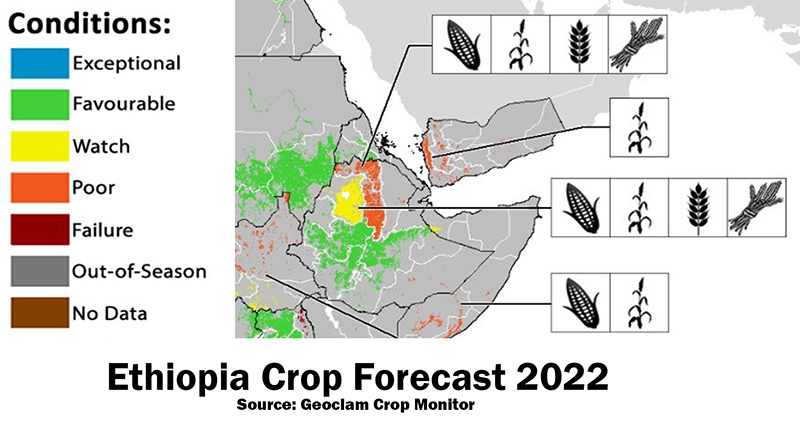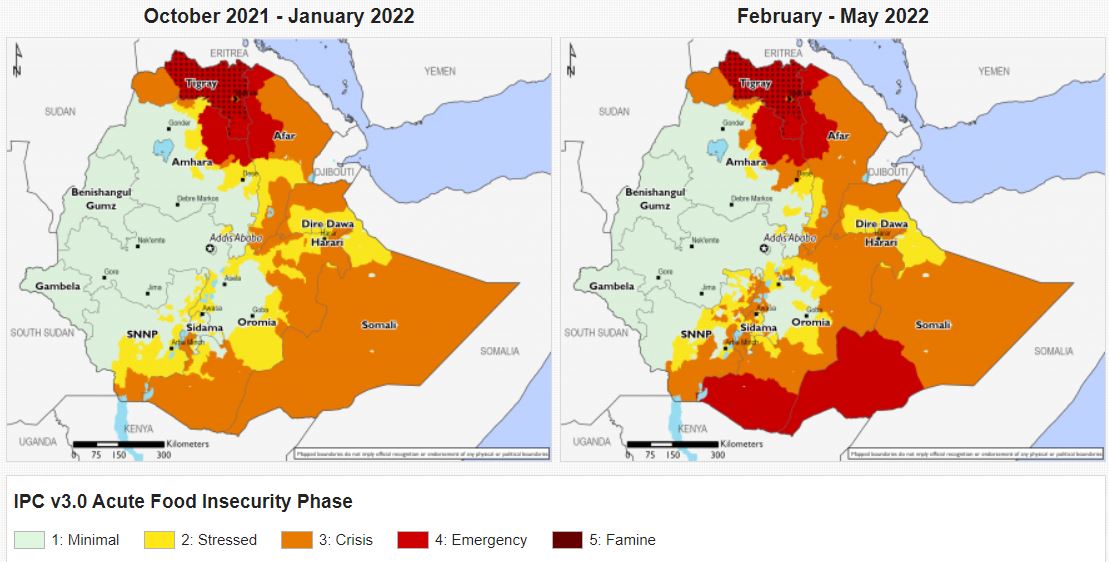
The forecast for growing cereal crops (teff, sorghum, maze, and wheat) in Tigray and Ethiopia in 2022 is poor for Tigray and questionable for Northern Ethiopia due to below average rainfall predictions based upon meteorological data and satellite sensors. Tigray cannot grow enough food to escape famine without receiving food aid. Normally there is a second season harvest which is more dependent on good rains then the first. The Ethiopian government continues the complete blockade of food and medicine to Tigray.
Without outside food aid from international sources such as the World Food Program this years crop in Tigray will be very insufficient to relieve the ongoing and worsening famine affecting more then 1 million Tigrayans and threatening ultimately another 5 to 6 million. Even for Ethiopia, the war spending in excess of $4 billion since the war with Tigray started will make it difficult to meet its needs even outside of Tigray without major purchases and/or aid.

Although Ethiopia claimed to withdrawal from Tigray last season to allow planting, Abiy Ahmed appointed official, Abraha Desta, said this was a lie and explained that seeds and farm equipment were sent to Eritrea as well that farmers were prevented from planting. While Ethiopia denied famine, Desta claimed it was a crisis causing many deaths. Eritreans also ransacked food aid during their occupation of Tigray. Just this week an Ethiopian attack on a community mill which farmers in Tigray need to make their crops into flour was destroyed. No seed supplies, fertilizer, or farm equipment has been allowed to be delivered to Tigray since the conflict began in November 2020. Most farmers depend upon farm animals to plow and carry heavy loads in their work but many animals were killed by Eritreans and Ethiopia forces.

